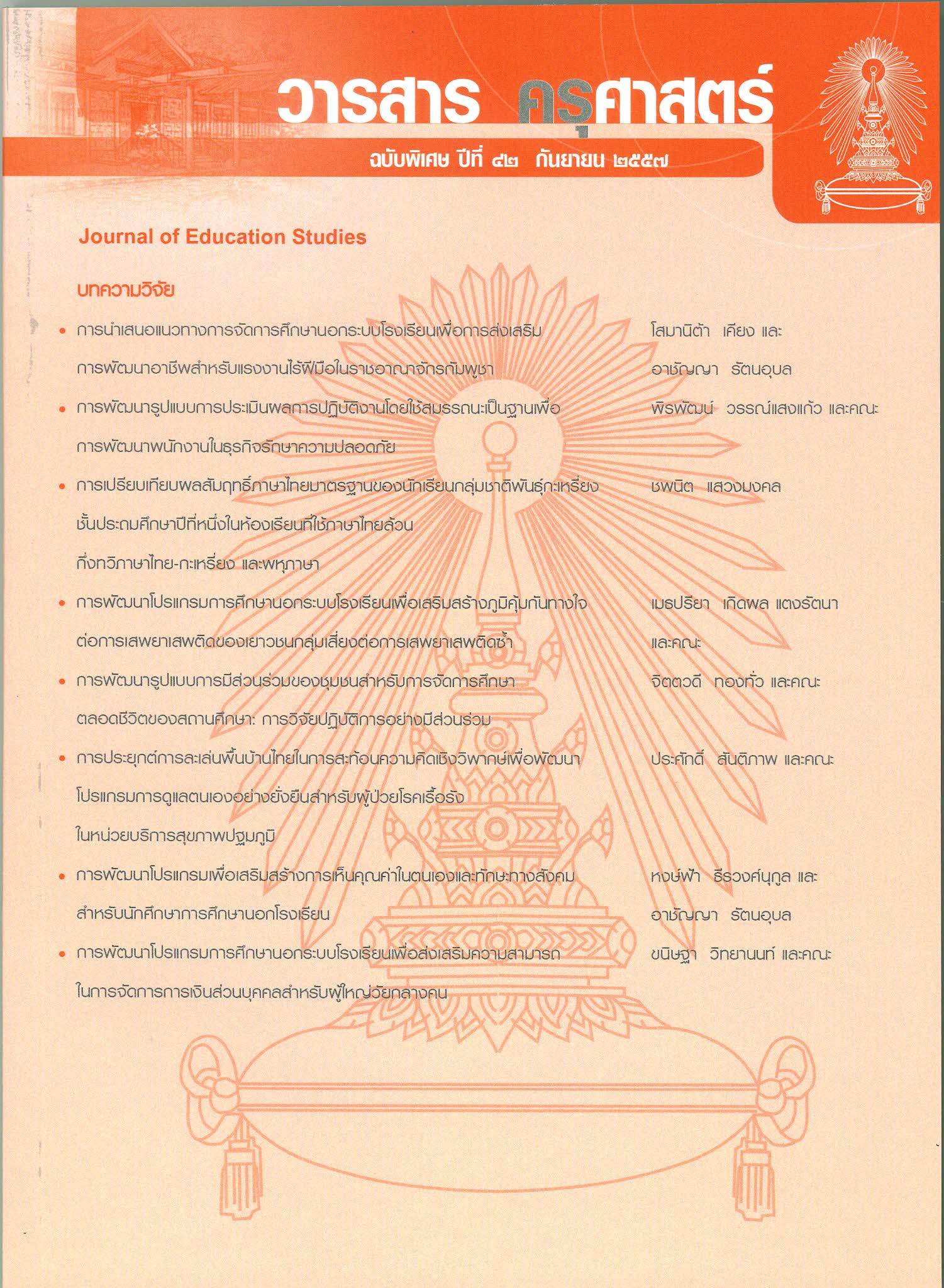The Application of Thai Folk Games in Critical Reflection to Sustain Self-Care for Chronically Ill People in A Philanthropic Primary Health Care Unit
Keywords:
NON-FORMAL EDUCATION, CRITICAL REFLECTION, THAI FOLK GAME, SELF-CAREAbstract
The purpose of this study was to develop a sustainable self-care program for chronically ill persons, who practiced self-care through attitude transformation. There were 2 phases of the study: phase 1 developed a sustainable self-care program from a literature review. Phase 2 was the experimental study of the interventionûs effects which comprised 12 weekly hour-long sessions. We collected data of self-care knowledge, attitudes, self-care practices and drug use of participants through personal interviews at baseline and 12 weeks later, which were analyzed by t-test, controlled for age, gender, and socioeconomic status. The results showed that Booneûs non-formal educational conceptual model combined with 6 core elements of Taylorûs transformative learning process was suitable. Furthermore, a synthesis of the critical reflection process was conducted which consisted of trigger event or dilemma simulation, dialogue, and premise exploration. The application of Thai folk games such as çthe blind hit the poté for dilemma simulation was considered suitable. A philanthropic primary health care unit was chosen within a lifelong learning context in this study, which improved social, human and monetary capital. The learners gained self-care knowledge, changed their attitude, improved self-care practices, and decreased drug use significantly. In conclusion, the self-care program with non-formal educational activities and critical reflection to gain self-care knowledge, change personal attitudes, improve self-care practices and reduce drug use was found to be sustainable.Downloads
How to Cite
Santiparp, P., Charungkiatkul, S., & Amatayakul, K. (2014). The Application of Thai Folk Games in Critical Reflection to Sustain Self-Care for Chronically Ill People in A Philanthropic Primary Health Care Unit. Journal of Education Studies, Chulalongkorn University, 42, 76–91. retrieved from https://so02.tci-thaijo.org/index.php/EDUCU/article/view/26461
Issue
Section
Research Articles




